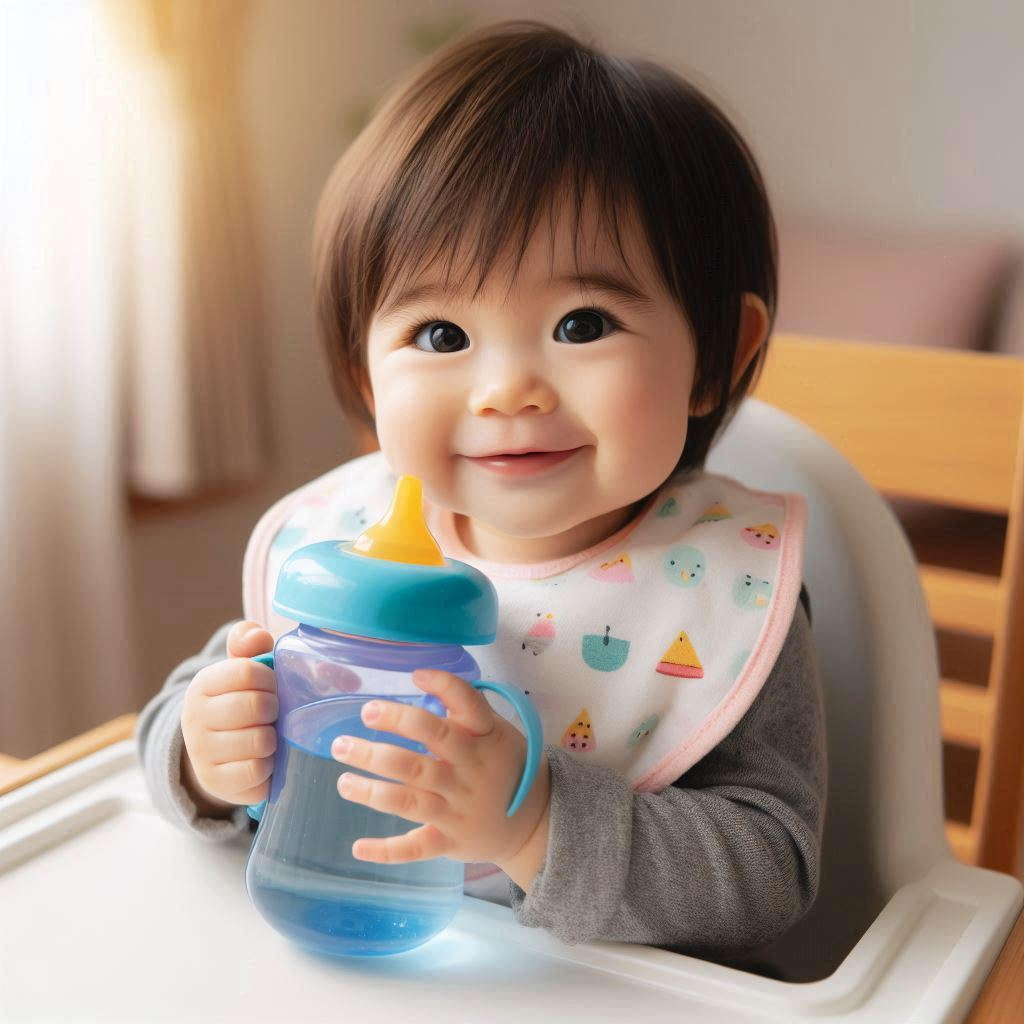Signs that my Baby is Dehydrated
As a parent, keeping your baby healthy and hydrated is a top priority. But sometimes, it’s not easy to tell if your little one is getting enough fluids. This guide will help you spot the signs of dehydration in babies, understand why it happens, and know what to do if you think your baby might be dehydrated.
Quick Answer
Key signs of dehydration in babies include fewer wet diapers, dry mouth and tongue, sunken soft spot on the head, fewer tears when crying, and decreased activity. Severe signs include very dry skin, sunken eyes, cool extremities, and extreme fussiness or sleepiness.
Understanding Baby Dehydration
Dehydration happens when your baby’s body loses more fluids than it takes in. This can be a big problem for little ones because their bodies are mostly water. They need the right amount of fluids to keep everything working well.
Why Babies Get Dehydrated
Babies can get dehydrated for a few reasons:
- Diarrhea: When your baby has loose, watery poops, they can lose a lot of water quickly.
- Throwing up: If your baby keeps throwing up, they might not be able to keep enough fluids down.
- Fever: A high temperature can make your baby sweat more and lose fluids faster.
- Not drinking enough: Sometimes babies just don’t drink as much as they should, especially when they’re sick or it’s really hot outside.
Spotting the Signs of Dehydration
Knowing what to look for can help you catch dehydration early. Here are some signs to watch out for:
Mild to Moderate Dehydration
- Fewer wet diapers: If your baby has less than 6 wet diapers in 24 hours, it could be a sign they’re not getting enough fluids.
- Dry mouth and tongue: Check inside your baby’s mouth. If it feels dry or sticky, they might need more to drink.
- Less active: A dehydrated baby might not want to play as much as usual.
- Sunken soft spot: The soft spot on top of your baby’s head (called the fontanel) might look sunken.
- Fewer tears: If your baby cries without making tears, it could be a sign of dehydration.
Severe Dehydration
If you notice any of these signs, it’s time to call the doctor right away:
- Very dry skin: Your baby’s skin might look and feel very dry.
- Sunken eyes: Your baby’s eyes might look sunken or hollow.
- Cool hands and feet: Your baby’s hands and feet might feel cool and look a bit blue or gray.
- Very sleepy or fussy: Your baby might be much harder to wake up or much fussier than normal.
- Wrinkly skin: If you gently pinch your baby’s skin, it might stay “tented” for a moment.
- Fast breathing or heartbeat: Your baby might breathe or have a heartbeat that seems faster than usual.
Keeping Your Baby Hydrated
The best way to deal with dehydration is to prevent it from happening in the first place. Here are some tips to keep your baby well-hydrated:
For Breastfed Babies
If you’re breastfeeding, the best thing to do is to nurse your baby more often. Your breast milk has everything your baby needs to stay hydrated. Don’t worry if your baby wants to nurse more frequently than usual – this is normal when they’re trying to get more fluids.
For Formula-Fed Babies
If your baby drinks formula, you might need to offer smaller amounts more often. This can be easier for a baby who’s not feeling well to handle. Always mix the formula exactly as the instructions say – don’t add extra water to try to hydrate your baby, as this can be dangerous.
For Older Babies
If your baby is over 6 months old and eating solid foods, you can offer small sips of water. You can also give them an electrolyte solution made for babies, but always check with your doctor first about how much to give.
What to Do If Your Baby Gets Dehydrated
If you think your baby might be dehydrated, here’s what you can do:
At Home
- Offer breast milk or formula more often, but in smaller amounts.
- If your baby is old enough for water, offer small sips frequently.
- For babies over 6 months, you can use an oral rehydration solution (ORS) like Pedialyte, but ask your doctor first.
- Keep track of wet diapers and how much your baby is drinking.
When to Call the Doctor
Don’t wait to call the doctor if:
- Your baby hasn’t had a wet diaper in 6 hours or more.
- Your baby seems very sluggish or won’t wake up easily.
- You see any signs of severe dehydration.
- Your baby has had diarrhea for more than a day.
- Your baby won’t drink or keeps throwing up.
A Parent’s Story: When My Baby Got Dehydrated
I remember when my little girl, Emma, got her first stomach bug at 8 months old. She couldn’t keep anything down, and I was so worried. I noticed she wasn’t having as many wet diapers and seemed extra fussy. When she cried and no tears came out, I knew something was wrong.
I called our pediatrician, who told us to come in right away. At the office, they checked Emma and said she was mildly dehydrated. The doctor showed us how to use a special dropper to give her tiny amounts of an electrolyte solution every few minutes. It was a long night of setting alarms and giving her little sips, but by morning, she was much better.
This experience taught me how quickly things can change with babies and how important it is to trust your instincts as a parent. Now, I always make sure to have some Pedialyte on hand, just in case.
Wrapping Up: Keeping Your Baby Healthy and Hydrated
Dehydration in babies can be scary, but knowing what to look for and how to respond can make a big difference. Remember these key points:
- Watch for signs like fewer wet diapers, dry mouth, and less activity.
- Offer fluids often, whether it’s breast milk, formula, or (for older babies) small sips of water.
- Don’t hesitate to call your doctor if you’re worried.
- Trust your instincts – you know your baby best!
By staying alert and acting quickly, you can help keep your baby healthy and well-hydrated. And remember, it’s always okay to ask for help or advice when it comes to your baby’s health. You’ve got this, parents!
Take a moment to check your home for oral rehydration solutions or electrolyte drinks suitable for babies. If you don’t have any, consider picking some up during your next shopping trip. It’s always better to be prepared!
Also, make sure you have your pediatrician’s number easily accessible, just in case. And don’t forget to share this information with other caregivers in your baby’s life – knowledge is power when it comes to keeping our little ones healthy!

Jessica Winter is a passionate parenting blogger with two years of experience guiding new and seasoned parents through the joys and challenges of raising babies. Her insightful posts blend personal anecdotes with expert advice to offer a warm and practical perspective on modern parenting.

